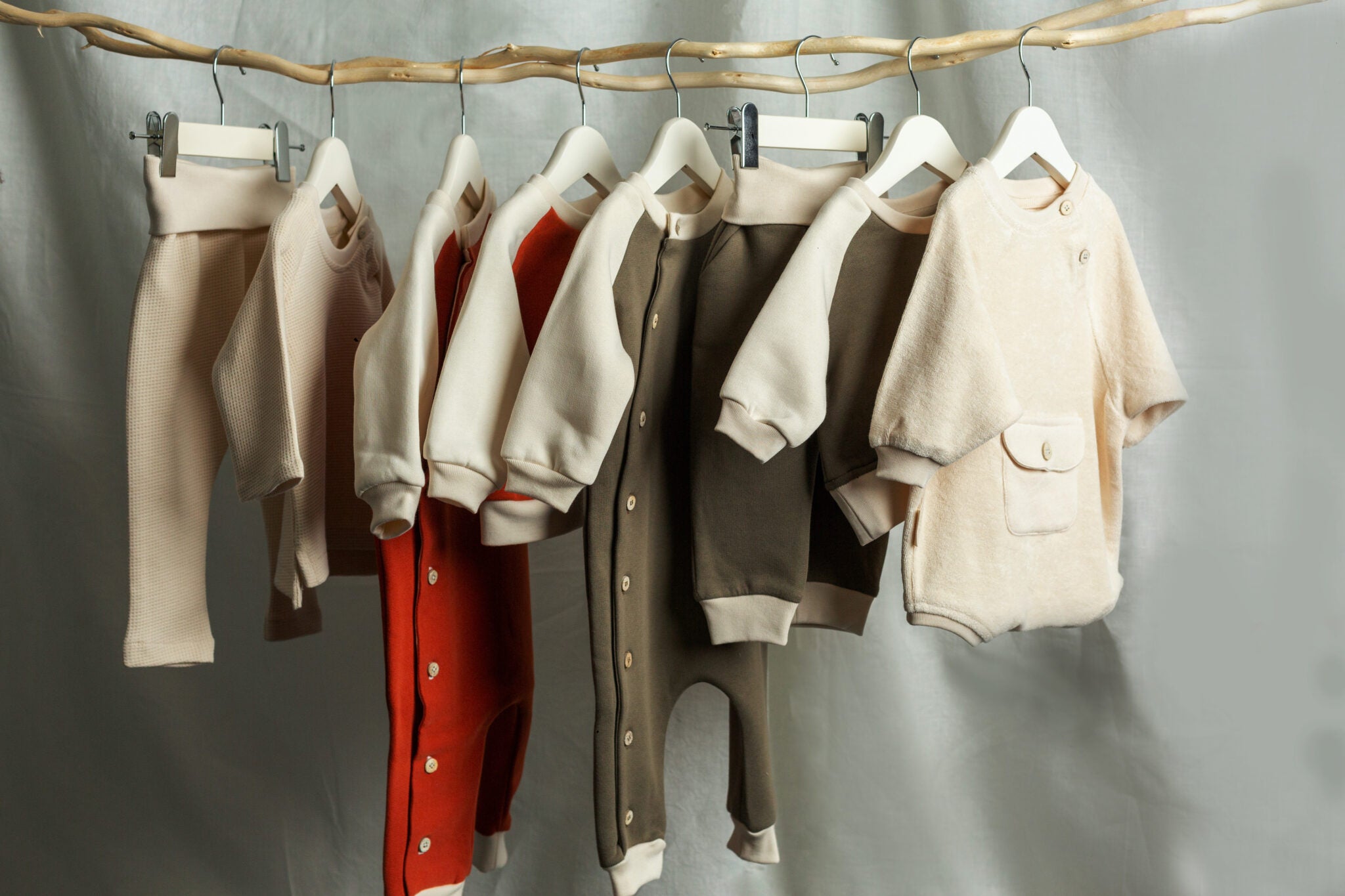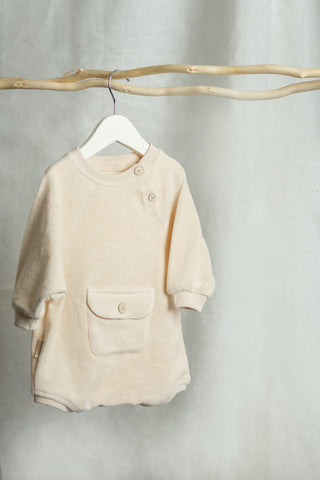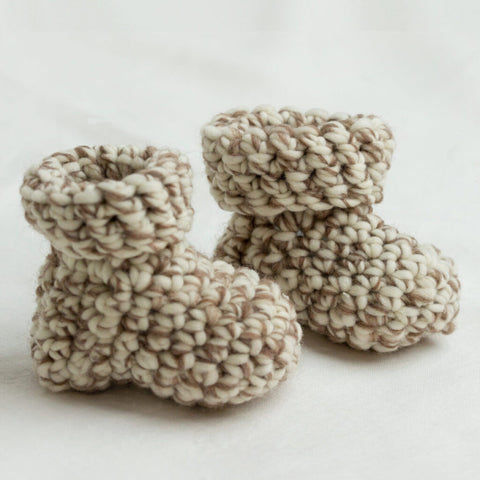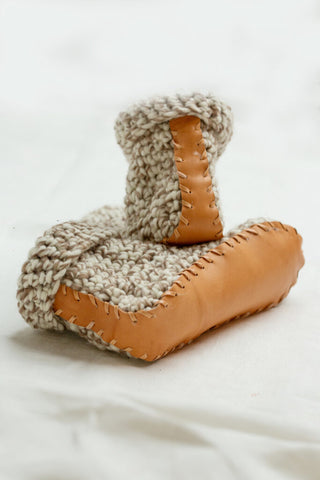
How do you dress a Mukhee baby?
With naturally elastic garments, without plastics or derivatives

100% natural and certified fabrics
The fabrics used to make our clothing and accessories are 100% natural, free of toxins and plastics. A large portion of our products are made from 100% organic cotton, although we have recently incorporated fabrics such as linen, lyocell, and recycled cotton.
Certificates
For organic cotton:
The GOTS certification guarantees that the cotton cultivation, harvesting, production, and processing process is carried out using controlled organic farming, prohibiting the use of hazardous inputs. It also guarantees that all products labeled with its seal have been produced ethically, with minimum wages that allow for a dignified life in humane, free, regular, and non-discriminatory conditions.
Many of the fabrics we use also carry the OCCGuarantee® seal, which guarantees that the product meets the highest quality standards of the textile industry at all stages of the production process, even from the seed.
The raw and brown fabrics take on the natural colors that come from the seed. As a result, some of the cotton plant's seeds can often be seen in the fabric. They are not applied with chemical fixatives to isolate them from natural agents, meaning the cotton is alive in the fabric, and therefore its color may vary slightly when exposed to factors such as sun, water, etc. All are GOTS certified.
Spanish transhumant merino wool
The wool used is 100% Spanish transhumant merino wool. It carries the Made in Slow seal, which ensures that it is locally made, with care and respect. It is a natural, ecological, and biodegradable fiber due to its natural origin. Its main properties are:
- Thermoregulatory: It has waves along its fibers that trap air inside. The larger these waves are, the larger the air chamber created between the fibers, resulting in greater insulation.
- Breathable: The moisture absorption and release properties, combined with the fact that it is a spongy fabric that does not adhere to the skin, leave a layer of ventilation between the skin and the garment, allowing for high breathability.
- Anti-odor: This fiber has natural antimicrobial properties, delaying the appearance of odors.
- Repels dirt: It contains less moisture than conventional wool, which reduces static electricity that attracts dust and environmental dirt.
- Soft: Since the fibers are finer than other wools, it is much softer to the touch and does not cause itching or skin irritation.
With this wool, we support the Transhumance by Made in Slow project for the recovery of Spanish transhumance, declared a Representative Manifestation of Intangible Cultural Heritage, and its merino wool, actively and directly contributing to improving the living conditions of transhumant shepherds, thus helping to preserve this activity.


Vegetable tanned leather, no chrome
The leather we use for the production of our Mukhees is vegetable tanned leather.
It is defined as "vegetable" because the substances used in tanning are tannins, natural extracts derived exclusively from plant sources such as trees and shrubs, mainly acacia, oak, chestnut, and quebracho.
From an environmental perspective, vegetable tanning is much more sustainable and poses no health risks.
It is much more artisanal and therefore less commonly used in industry, but it produces skins with greater porosity that allow their appearance to be modified over time, improving them.

